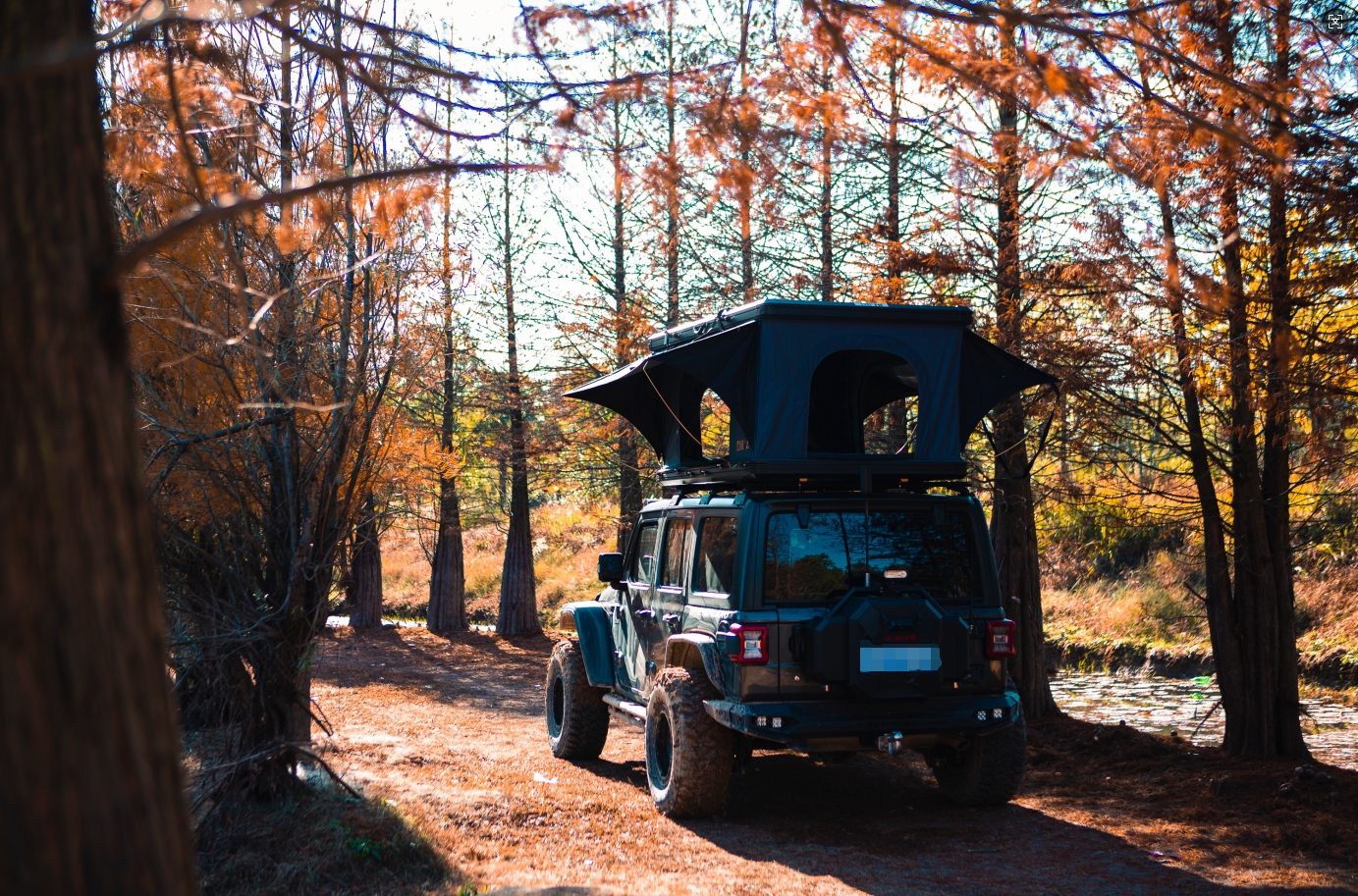With the increasing popularity of road trips and outdoor adventures, rooftop tents have become an essential piece of equipment for camping enthusiasts. A well-chosen rooftop tent can significantly enhance your travel experience, offering comfort, safety, and convenience. However, selecting the right rooftop tent requires careful consideration to ensure compatibility with your vehicle. Below are the key factors to keep in mind when choosing the perfect rooftop tent.
Key Factors to Consider:
1. Vehicle Load Capacity
The load-bearing capacity of your vehicle plays a crucial role in determining which rooftop tent is suitable.
- Dynamic Load Capacity: This refers to the maximum weight your vehicle’s roof can handle while driving. It includes the weight of the tent and any additional gear stored on the roof. Always check your vehicle manufacturer’s specifications to ensure the rooftop tent does not exceed this limit.
- Static Load Capacity: This is the weight your vehicle can support when stationary. Since a rooftop tent distributes weight across the roof rack and is further supported by a ladder, vehicles can typically support three times their dynamic load when parked. Ensure your vehicle can accommodate the combined weight of the tent and occupants inside.
2. Roof Rack Compatibility
Most factory-installed roof racks are not designed to support heavy loads like a rooftop tent. Investing in a high-quality aftermarket roof rack with an appropriate weight capacity is essential.
- Look for racks compatible with the brand of your rooftop tent.
- Consider racks from trusted brands like Thule or Yakima, which offer strong, durable options.
- Always verify the load capacity of your roof rack before purchasing.
3. Roof Type
Not all vehicles are compatible with rooftop tents, especially those with glass sunroofs or bare roofs without rails. Here’s what to consider:
- Compatible Roof Types: Vehicles with raised rails, crossbars, or track systems generally provide a solid mounting base for rooftop tents.
- Incompatible Roof Types: Vehicles with panoramic glass roofs or bare roofs without mounting points may not be suitable.
- Mounting Considerations: Ensure the aluminum mounting bars at the base of the tent fit within the recommended distance for your vehicle’s roof width. Checking the tent’s installation manual can help avoid fitment issues.
Additional Tips for a Better Rooftop Tent Experience
- Consider Tent Material & Weather Resistance: A durable, waterproof, and well-ventilated tent will provide a more comfortable camping experience in varying weather conditions.
- Ease of Setup: Hard-shell rooftop tents typically offer quicker setup times compared to soft-shell models.
- Weight Distribution: Make sure to evenly distribute weight inside the tent to maintain vehicle stability and safety.
Conclusion
Choosing the right rooftop tent involves more than just picking a model that looks good. By considering your vehicle’s load capacity, roof rack compatibility, and roof type, you can ensure a safe and comfortable camping experience. If you have any questions or need expert recommendations, feel free to contact us. With years of experience in rooftop tent research and manufacturing, we are committed to providing top-quality products and technical support.
Visit our website at www.xscamper.com for more details on our latest rooftop tent models. Let’s make your next adventure unforgettable!
Best regards,
XSU Team
Sales@xscamper.com
Yongkang Sensu Leisure Products Co., Ltd.


